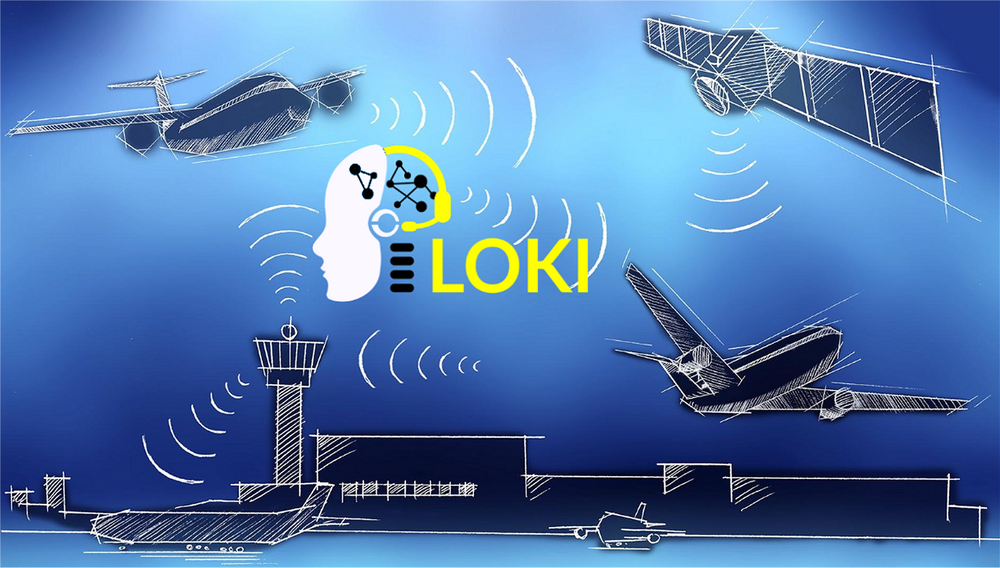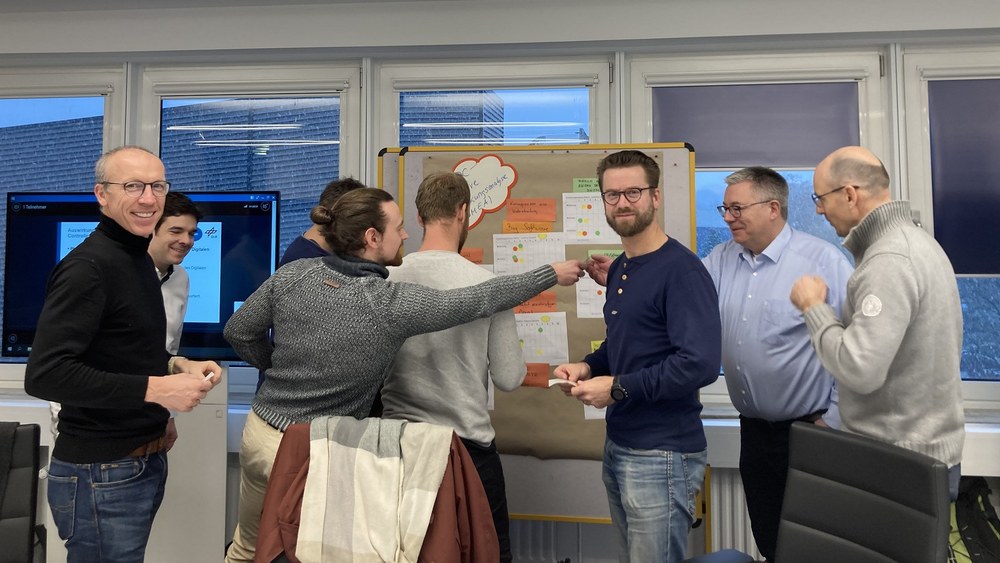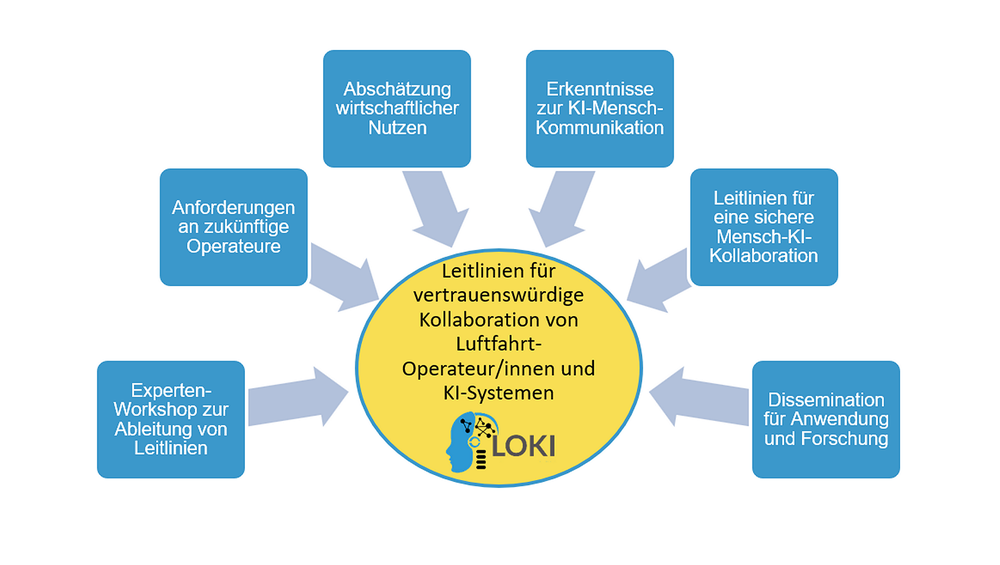LOKI: Research focus on human-AI collaboration



The LOKI team is working on key topics for trustworthy human-AI collaboration:
- Assessment key requirements for AI systems and the human users
- Development of AI algorithms for categorizing user states
- Development of user-centred prototypes of human-AI systems in aviation
- Research into human-AI collaboration with empirical studies
- Derivation of guidelines for trustworthy human-AI collaboration
Assessment key requirements for AI systems and the human users
Contact: Carmen Bruder & Thomas Stefani
For the successful introduction of AI systems in flight guidance and air traffic control, it is crucial to identify the expectations and needs of air traffic controllers and pilots at an early stage. Beside this, potential changes for users of AI-based systems should also be included in the development process. To this end, we are carrying out the following measures:
- Analysing use cases for human-AI collaboration in aviation and beyond
- Workshops with users to identify expectations and concerns
- Workshops with human factors experts to consider specialist knowledge
The results of these activities are initial requirements for AI systems in safety-relevant, operational areas of aviation. Research topics are also identified that will be investigated in LOKI.
Development of AI algorithms for categorizing user states
Contact: Julia Fligge-Niebling & Katja Gayraud
In LOKI, established AI methods are applied to the context of human-machine interaction in aviation. To enable flexibly adaptation to the user, the AI system must detect the current state of the user. We are developing machine learning approaches to reliably detect fatigue and attention states based on large amounts of user data, such as gaze and performance data. LOKI is also researching how the detected states could be used to give users explainable feedback.
Development of user-centred prototypes of human-AI systems in aviation
Contact: Mohsan Jameel & Robert Hunger
In LOKI, demonstrators and prototypes of a digital controller and a digital co-pilot are being developed to work together with their human partners by carrying out various tasks. These systems integrate methods of artificial intelligence and machine learning. The focus of the development is on collaboration between humans and digital partners, in which humans have control over the AI systems, receive appropriate support and are informed transparently about how the AI system work.
To this end, experts from various disciplines and domains are jointly developing approaches and demonstrators for human-AI collaboration. They incorporate AI concepts from different areas using proven methods such as task and interface analyses as well as integrative workshops and studies with users.
Research into human-AI collaboration with empirical studies
Contact: Christian Mühl & Dirk Schulze Kissing
Empirical studies on human-AI collaboration are carried out in LOKI. For this purpose, empirical studies in realistic simulators and experiments with laboratory character are combined. This enables us to systematically investigate specific questions on collaboration between AI systems and human operators under controlled conditions. This provides fundamental insights into the design of specific applications, such as the digital controller and its interface with the human air traffic controller. For the validation of the digital co-pilot, we use large-scale facilities such as the ATMOS (DLR Air Traffic Management Simulator).
Derivation of guidelines for trustworthy human-AI collaboration
Contact: Carmen Bruder & Martin Jung
The ultimate goal of LOKI is to integrate the findings from the various LOKI activities into guidelines and recommendations for the development of AI systems that work reliably and explainable for their human users in aviation. Finally, the findings are exchanged and discussed both with scientific expert and with domain experts in joint workshops. In a cost-benefit analysis, the ecological potential for the introduction of the digital co-pilot was analyzed with regard to the air traffic system. Parallel to all this, the findings and recommendations will be published in scientific publications and made available to the public at a LOKI symposium.
Contact
Dr. Carmen Bruder
Dr. Dirk Schulze-Kissing
